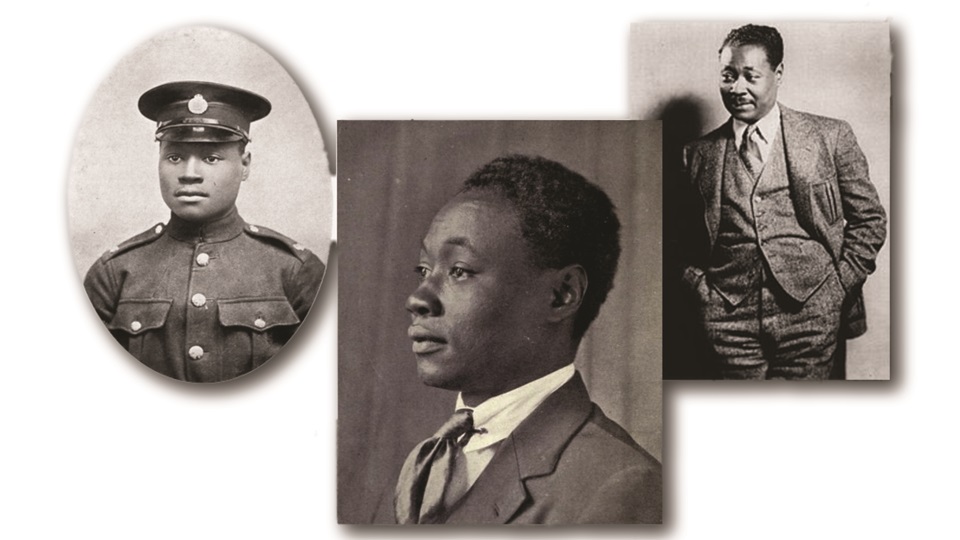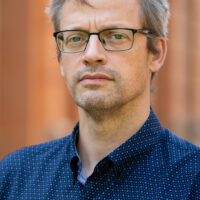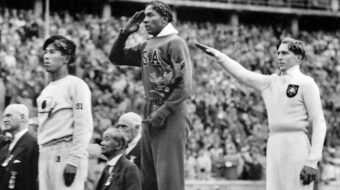
Like a thunderbolt into the heart of Black letters and radical politics, Claude McKay’s poem “If We Must Die” blasted its warnings and promises onto the pages of the July 1919 issue of The Liberator. Along with six other McKay lyrics, articles on the IWW, a discussion of religion in the Soviet Union, a cartoon mocking the U.S. Socialist Party for hesitating to join the Communist International, and ads promoting the prominent Black socialist magazine The Messenger, McKay’s poems were introduced by Max Eastman, the magazine’s co-founder and editor, as written by an “unknown poet” from Jamaica who worked as a waiter in a dining car.
“If We Must Die” was composed during the “Red Summer” of 1919 when mobs of Euro-Americans descended with pure hatred in their hearts and murder on their minds onto more than three dozen Black neighborhoods and communities across the U.S. McKay’s most famous poem refused passive acceptance of their brutality. “Like men,” the poem declaimed in the gendered language of that time, “we’ll face the murderous, cowardly pack / Pressed to the wall, dying, but—fighting back!” McKay spoke for a new generation of Black radicals, as distinguished historian Winston James shows, who rejected the fallacy that they could leave their communities’ self-defense to the forces of “law and order” and expect either justice or peace. This generation referred to itself as “the New Negro.”
James documents the outpouring of elation and rapture with which radical and Black nationalist literary circles welcomed what would become McKay’s most famous poem. First published in The Liberator, founded by Max Eastman, Crystal Eastman, Floyd Dell, and John Reed after authorities censored The Masses, “If We Must Die” was subsequently reprinted in A. Philip Randolph’s The Messenger, Cyril Briggs’ The Crusader, W.E.B. Du Bois’s The Crisis, and Marcus Garvey’s Negro World, which was edited by McKay’s close friend, Hubert Harrison. McKay, who had cited as influential Du Bois’s pronouncement that Black soldiers returned from Europe “fighting,” as well as the deep emotional conflagrations inspired by mass killings and violence targeting Black people, also republished the poem in his 1922 book Harlem Shadows.
Claude McKay: The Making of a Black Bolshevik is a trenchant and astonishing work. James’ care with details, research, and analysis—along with a pleasurable style of writing—make for a captivating biography of the first part of McKay’s radical life. It details the first 32 years of McKay’s short life, up to 1921 and his return to New York from London. It contextualizes McKay’s early family life in rural Jamaica, his upbringing in Black and radical social circles, his short-lived career in the Jamaican constabulary, and his migration to the U.S. This book also explores McKay’s complicated friendships with important editorial figures such as Harrison, the Eastmans, Frank Harris, Sylvia Pankhurst, and C.K. Ogden. His comradeship with other prominent revolutionaries such as Grace Campbell, Cyril Briggs, W.A. Domingo, Louise Bryant, and others await the next chapter of McKay’s life.
In Jamaica, McKay had established his reputation as a widely-known poet publishing two books of verse, Songs of Jamaica and Constab Ballads, almost always in the dialect of working-class and peasant Jamaicans. James reviews several of the poems from this period, providing insights into their contexts and meanings. Of the period overall, James writes that McKay’s poems show a radical mind “still searching ideologically” for deeper, clearer answers to problems of imperialism, racism, and capitalism. McKay’s themes tended to elevate the voices of peasant women, denounce abusive power and injustice, and, well in advance of the “negritude” poets, e.g., the Martinican communist Aimé Césaire of the subsequent generation, associated Blackness with beauty and Africa with goodness and social progress.
James’ account of this period includes a detailed sketch of Jamaica’s economic development and social structure in the late 19th century and 20th century into which McKay had been born. At the time of McKay’s youth, Jamaica had begun a difficult transition from sugar production to banana exports, the latter of which in the early 1900s fell under the monopolistic control of the Boston Fruit Co., which would soon expand its global holdings and rename itself the United Fruit Co. British colonial authorities had created a regressive tax, land tenure, and labor system that denied most Black people the ability to access the means of production, forcing them to work either as agricultural laborers for “starvation wages” in the countryside or menial labor in the urban areas.
A tiny class of more prosperous Black and Brown people were confined to education for teaching, the military or police, or clergy. The last child of a large, somewhat successful farming family, McKay selected the police but quickly found himself disgusted with the role of abusing Black working-class and poor people who were always on the receiving end of police abuses. After leaving Jamaica in 1912, despite his profound love for its people and land and an enduring homesickness, he never returned.
In the U.S., he initially pursued a degree in agronomy at Tuskegee and then at Kansas State College. His intention was to return to Jamaica and work with Jamaican peasant communities to improve their technical capacities. Instead, after two years in Manhattan, Kansas, McKay left for the Big Apple in 1914, hoping to establish a restaurant in Brooklyn. After failing in business, McKay found work in various service occupations such as a waiter, janitor, dishwasher, butler, and housekeeper. “America was his crucible,” James notes.
James’ summary sketches of the events of the “Red Summer” of 1919, the failures of authorities to intervene to protect Black people, and the organized self-defense that Black people implemented in Chicago and Washington serve as the social material that gave meaning to McKay’s most famous poem. It was U.S. racism that shaped McKay’s ultimate trajectory toward revolutionary socialism, membership in the Communist Party, and an important role at the Communist International congresses in the early 1920s (not discussed in this book).
After slightly more than a year in London, during which he worked closely with the founders of the British communist movement, such as Sylvia Pankhurst, and published another book of poems, McKay returned to the United States. He returned with a stronger Pan-African affiliation, rejecting fully false Western civilizational ideologies that located Africa and its peoples on the lowest rung of its fabricated human hierarchy. He thoroughly disabused himself of the notion that he was somehow “British,” and committed himself to never living in the U.K. or its territories again. He deepened his commitment to Bolshevism, choosing an unsteady, if necessary, alliance with Euro-American and European revolutionaries committed to the socialist and anti-colonial project.
James’s decision to leave out more than passing references to McKay’s short-lived marriage to Eulalie Imelda Lewars, with whom he had a child, and the poet’s sexuality, which are treated in depth in other biographies, seems to rest on the inability to add much new information to those aspects of the poet’s identity. One of James’s strongest contributions to his narrative of McKay’s intellectual, creative, and political development is the successful and readable contextualization of McKay’s life and the specific influences on the development of his thought. Thus, British colonialism in Jamaica, U.S. racism and capitalist exploitation, and London’s unfailing bigotry were social forces that McKay both contended with personally, and against in political movements, and through which his immeasurably profound creative imagination gained a new direction. I eagerly look forward to the next installments, if any such are in the works, of this important scholarly undertaking.
Claude McKay: The Making of a Black Bolshevik
By Winston James
New York: Columbia University Press, 2022
We hope you appreciated this article. At People’s World, we believe news and information should be free and accessible to all, but we need your help. Our journalism is free of corporate influence and paywalls because we are totally reader-supported. Only you, our readers and supporters, make this possible. If you enjoy reading People’s World and the stories we bring you, please support our work by donating or becoming a monthly sustainer today. Thank you!












Comments